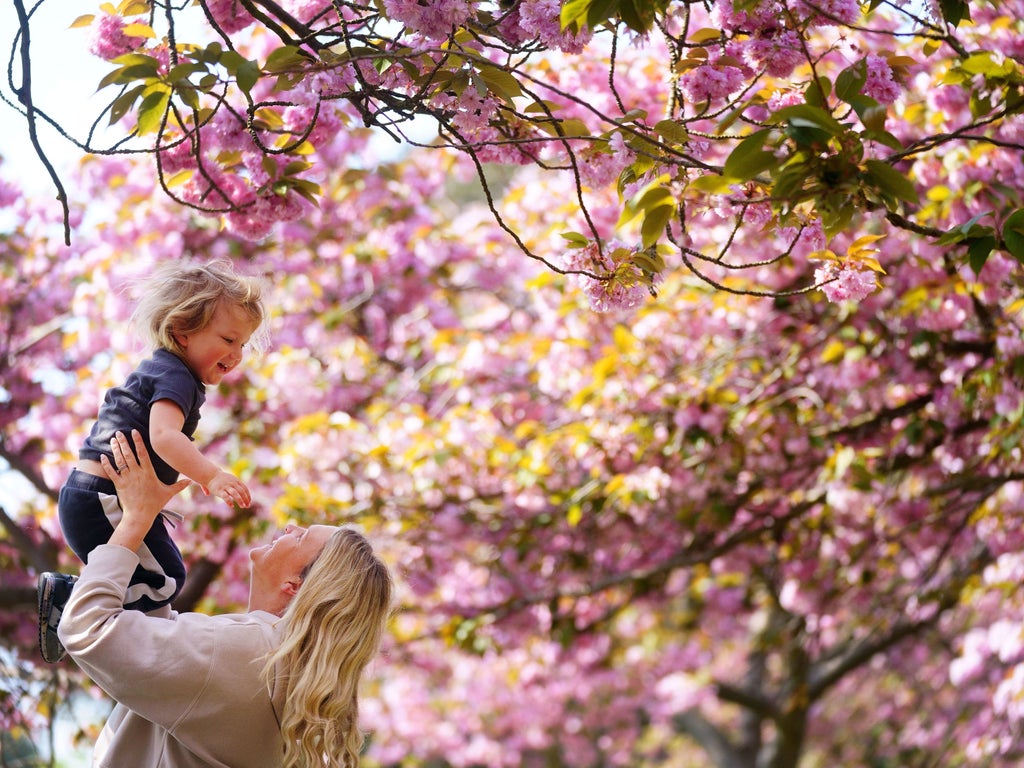
The National Trust is urging people to take full advantage of the short spring blossom season to lift their spirits.
The fleeting spectacle, which sees trees like blackthorn, wild cherry blossom and crab apple burst into flower between March to May, is often documented on social media through the hashtag #BlossomWatch.
The conservation charity is marking Blossom Watch Day on Saturday 23 April for the second year running to help people in the UK appreciate the beauty of this season.
According to the National Trust, spring blossoms create vital habitats for birds, bees and badgers by providing shelter and food.
Bees use the blossoming trees for pollen, and autumn fruits that grow from them provide food for thrushes, blackbirds and badgers.
Images taken by people in public parks, the countryside, and even their own gardens will feature in adverts across 17 UK cities, including London, Cardiff and Belfast.

One of the images chosen to appear in Nottingham is taken by Franz Zubieta Mariscal at the University of Nottingham campus and is dedicated to the ongoing conflict in Ukraine.
He said the blossoms represent “the main virtue of mankind: resilience”.
“There is always a point at which cold becomes light and darkness turns into colour,” he added.
For Sarah Lawrenson, 47, whose blossom image will appear in adverts in Manchester, her inspiration was drawn from her newfound appreciation of wildflowers during the first Covid lockdown in 2020.
“I was furloughed from my job and future seemed so uncertain that I found great comfort in seeing the seasons pass through my love of both nature and photography," Lawrenson said.
“My parents were shielding and I loved the idea of bringing nature back to those stuck inside.

“Blossom itself brings so much promise of warmer, brighter times to come, so #BlossomWatch was a fantastic opportunity to help people to enjoy this wonderful time and share the joy and positivity.”
The National Trust is hoping for a warm spring after temperatures nosedived at the end of March, which resulted in some blossoms being unable to reach their full glory.
The cold snap, caused by Arctic air pushing south across most of the UK, brought unsettled conditions including widespread icy patches, wintry showers, sleet and snow between the end of March and the start of April.
On 30 March, the Royal Horticultural Society’s Guy Barter warned that the unusually cold weather would “slow plant growth and inhibit plums and pear pollination as insects fly less in cold dull weather”.
But there is hope that the spring blossom spectacle will last longer this year as temperatures stabilise.
Andy Jasper, head of gardens and parkland at the charity, said: “Despite some sharp frosts in late March which affected some magnolia in some parts of the country, we will hopefully see a longer season with much more blossom to enjoy this year.”
This year’s #BlossomWatch campaign has already seen more than 53,000 images shared across social media, with the National Trust’s own social media channels receiving more than 5.5 million views.
Additional reporting by PA







